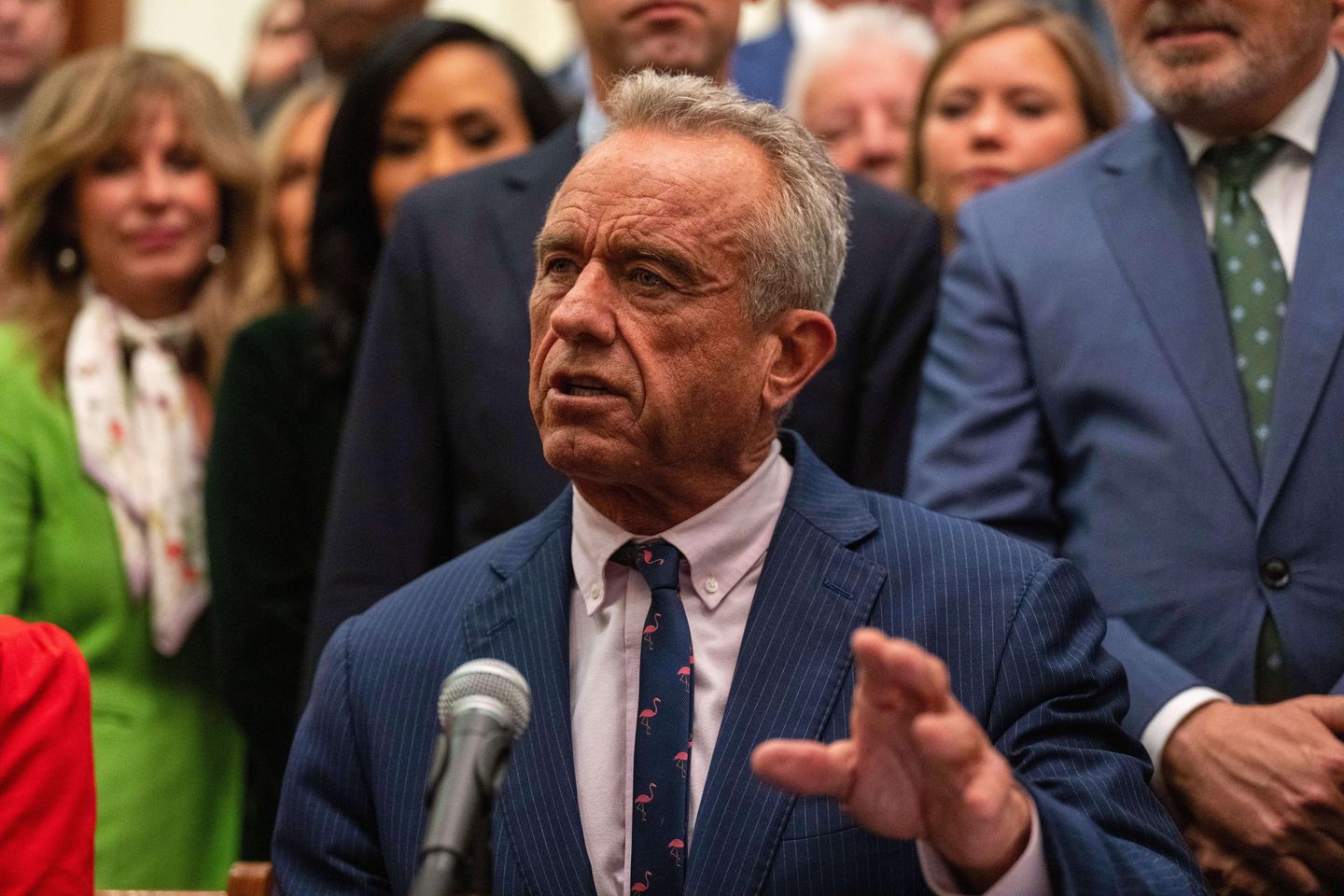
Health and Human Services Secretary Robert F. Kennedy Jr. unveiled a Make America Healthy Again strategy on Tuesday to improve children’s health and stop the rise of chronic diseases.
The strategy, devised by Mr. Kennedy’s MAHA Commission, outlined 128 policy recommendations and identified four ways to address childhood chronic diseases: advancing research, fostering private sector collaboration, realigning incentives and increasing public awareness.
The commission cited four potential drivers of chronic diseases in children: poor diet, chemical exposure, lack of physical activity and chronic stress and overmedicalization.
“This is an existential crisis for our country, and I’m so grateful that I work for a president that is willing to run through walls to stop this and to heal our kids,” Mr. Kennedy said when announcing the strategy.
He was joined by MAHA Commission members, including Agriculture Secretary Brooke Rollins, Environmental Protection Agency Administrator Lee Zeldin, Food and Drug Administration Commissioner Dr. Marty Makary and National Institutes of Health Director Jay Bhattacharya, among others.
The commission’s 20-page report does not list any specific way the government can implement these recommendations or how they would be funded.
Mr. Kennedy said the accomplishments they will have by the end of the year “are going to be historic and unprecedented,” and will include removing harmful chemicals from food or having deadlines to remove them by, defining ultra-processed foods, requiring nutrition and metabolic courses in medical schools, improving food for the military, schools and hospitals and increasing water quality.
Other changes, he said, include reforming the Supplemental Nutrition Assistance Program to remove soda and candy from the program and providing more assistance to farmers, among others.
“These are bipartisan reforms, many of them would be unthinkable two years ago,” he said.
HHS will also start collaborating with NIH to investigate vaccine injuries, which Mr. Kennedy said hasn’t been done in the past.
“The people who are injured deserve the same kind of care and consideration that we give to anybody who’s injured in this country,” he said.
Mr. Kennedy has long been skeptical of vaccines, and President Trump recently removed himself from Mr. Kennedy’s rhetoric, saying in the Oval Office on Friday that, “I think you have to be very careful when you say that some people don’t have to be vaccinated.”
“Look, you have vaccines that work. They just pure and simple work. They’re not controversial at all, and I think those vaccines should be used. Otherwise, some people are going to catch it, and they endanger other people,” Mr. Trump said. “And when you don’t have controversy at all, I think people should take it.”
As part of the new strategy, HHS will work with the White House Domestic Policy Council on a new vaccine framework that will ensure “America has the best childhood vaccine schedule.”
The report did not delve into the causes of autism, which has sparked a fierce public debate. It said HHS, through the NIH and in collaboration with the Centers for Medicare and Medicaid Services, will study the “root causes” of autism.
The report was met with some criticism from scientists and researchers, who said the goals are important, but the effort suffers from a glaring lack of science.
“The MAHA Commission’s goal of improving children’s health is important and urgent — but recommendations must be built on transparent, reproducible science and once again the MAHA Commission falls woefully short of this standard,” food scientist Dr. Mark Kern said.
“Although some of the commission’s points may yield less onerous policies for consumers, farmers, and food manufacturers than the original MAHA report suggested, the lack of sound scientific grounding could lead to harmful consequences for each of these groups once policies are written and implemented,” he said.





![ICE Arrests Illegal Alien Influencer During Her Livestream in Los Angeles: ‘You Bet We Did’ [WATCH]](https://www.right2024.com/wp-content/uploads/2025/08/ICE-Arrests-Illegal-Alien-Influencer-During-Her-Livestream-in-Los-350x250.jpg)
![Gavin Newsom Threatens to 'Punch These Sons of B*thces in the Mouth' [WATCH]](https://www.right2024.com/wp-content/uploads/2025/08/Gavin-Newsom-Threatens-to-Punch-These-Sons-of-Bthces-in-350x250.jpg)
![Black BET Billionaire Donor Stuns Democrats, Gives $500K to Winsome Earle-Sears [WATCH]](https://www.right2024.com/wp-content/uploads/2025/08/Black-BET-Billionaire-Donor-Stuns-Democrats-Gives-500K-to-Winsome-350x250.jpg)






